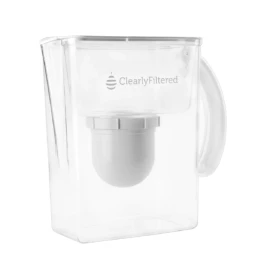We combed through multiple medical journals looking for the latest research on the Integrative approach to kidney health. We know your time is valuable, so we curated and summarized these studies for you. Welcome to the InKidney April Research and News.
April Research and News
Higher serum bicarbonate is associated with a decrease in the progression of CKD
Metabolic acidosis describes rising blood acidity (we are not talking about stomach acidity or acid reflux). It occurs in chronic kidney disease (CKD) because of the loss of the kidney’s ability to excrete acids.
Several studies demonstrated that metabolic acidosis is associated with bone disease, muscle wasting, and even faster progression of CKD.
This large study published in Kidney Medicine confirms that correcting metabolic acidosis slows the progression of CKD. In this study, investigators studied 51,558 US patients with CKD stage 3-5.
They compared patients with low serum bicarbonate (metabolic acidosis and those with normal serum bicarbonate. They looked at differences between the two groups in outcomes such as a decline in estimated glomerular filtration rate (eGFR), and annual health care cost.
Those with metabolic acidosis had a much higher risk for the progression of CKD after 2 years.
Each 1 mEq/L increase in serum bicarbonate was associated with a 13% decrease in the progression of CKD and a 7% decrease in the annual cost of care.
This is probably the largest study to date that links acidosis to the progression of CKD.
There are lots of other studies that found that correcting metabolic acidosis in CKD is associated with improved outcomes without causing an increase in blood pressure.
By the way, 1 teaspoon has about 60 mEq of bicarbonate compared to only 7.7 in sodium bicarbonate tablets.
Join us to end the kidney disease epidemic and receive the FREE Report “5 Pitfalls to Avoid When Caring for Kidney Patients”
Glutathione peroxidase is decreased in CKD and is linked to fibrosis
One of the major problems with the progression of CKD is the development of irreversible fibrosis (scarring).
In this basic research study, researchers looked at the extracellular matrix in mice with CKD. They performed a “proteome-wide” analysis and compared the extracellular matrix in mice with CKD and those who are normal.
They found 9 proteins that could play a role in causing oxidative stress, fibrosis, and inflammation.
However, only glutathione peroxidase 3 was decreased in CKD.
Glutathione peroxidase 3 is responsible for converting glutathione (our master antioxidant) to its oxidized state. See the figure below.
Glutathione helps to recycle other antioxidants. On top of that, GSH has other functions, such as metabolism, cell signaling, and protein interactions, that can also mediate defense against oxidants. It helps the body get rid of heavy metals and a long list of toxins.
A decrease in glutathione peroxidase 3 in CKD that is observed in this study hinders the kidney’s ability to deal with oxidative stress, which can lead to inflammation and fibrosis.
Therefore supporting glutathione may be one of the crucial elements in decreasing fibrosis in CKD.
In a population-based study, SGLT2 inhibitors are not as safe as they have been depicted
In a study published in CJASN, investigators looked at healthcare insurance claims data of patients with CKD stage 3-4 and type 2 diabetes who newly filled prescriptions for either sodium-glucose cotransporter-2 inhibitors (SGLT2i) or glucagon-like peptide-1 receptor agonists (GLP-1RA).
They compared safety outcomes between the two groups. These included the development of diabetic ketoacidosis (DKA), lower-limb amputations, non-vertebral fractures, genital infection, hypovolemia (dehydration), acute kidney injury (AKI), hypoglycemia (low blood sugar), and severe urinary tract infections (UTI).
They found that SGLT2i was associated with a higher risk for non-vertebral fractures, lower limb amputations, and genital infections.
The rate of DKA, dehydration and hypoglycemia, and severe UTI were relatively the same in both groups. SGLT2i was associated with a lower risk for AKI.
Join here to receive FREE monthly updates on the latest research in Integrative Nephrology and tips on managing kidney disease straight to your inbox.
We would love to hear your feedback. Let us know what you think of these educational materials and if you like us to focus on specific topics. Please email us at info@inkidney.com.





